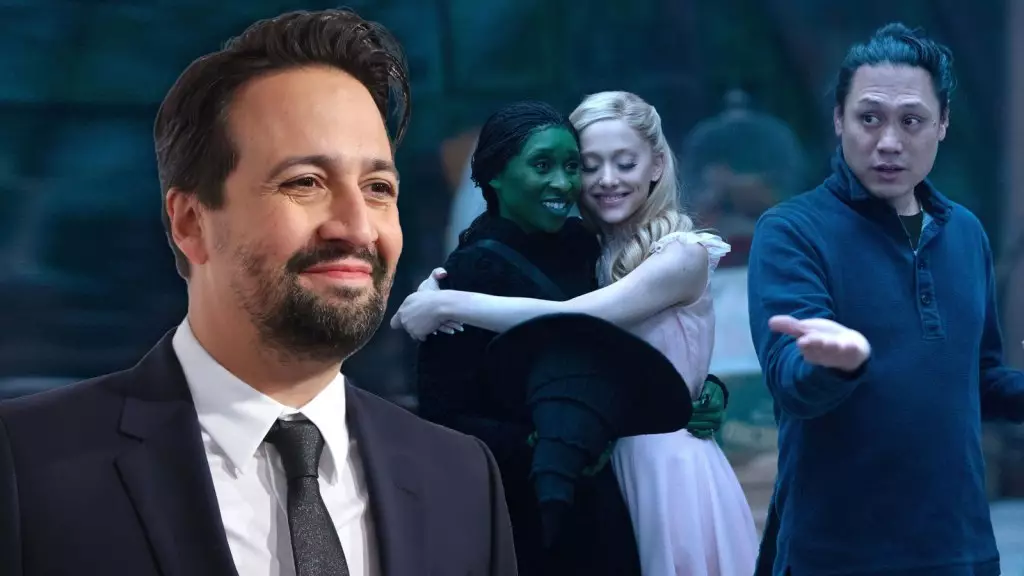The adaptation of Broadway’s beloved musical “Wicked” into a film has been a significant talking point in the entertainment world, garnering attention for its star-studded cast and captivating storyline. One name that has frequently emerged from discussions around the film is Lin-Manuel Miranda, the acclaimed creator of “Hamilton.” However, Miranda’s insights regarding his non-involvement with “Wicked” provide a fascinating glimpse into the complexities of casting and the nuances of performance styles.
In a candid interview on “The Late Show with Stephen Colbert,” Miranda elaborated on the reasons behind his absence from the cast. While his passion for a specific line in the musical’s opening sequence was palpable, he recognized the potential for distraction his involvement might have caused. Miranda humorously shared his desire to deliver the munchkin’s iconic line, but with his own interpretation, which he jokingly suggested could resemble a character from “Mean Girls.” This admittance reflects the artistic vision that Miranda holds dear while simultaneously demonstrating his self-awareness regarding audience perception.
Though Miranda’s enthusiasm for the role was clear, his acknowledgment of why he wasn’t cast speaks volumes about the intricacies of casting decisions in the theater. The film’s director, Jon M. Chu, whom Miranda previously collaborated with on “In The Heights,” had to consider not only the suitability of an actor for a role but also how their presence might overshadow the narrative. Miranda’s admission suggests that there exists a fine line between star power and character integrity, which can significantly influence the audience’s experience: too much individual flair can detract from the collective storytelling.
The role ultimately went to Kirsty Anne Shaw, whose earnest performance resonated well with audiences. Miranda’s respectful comments about Shaw’s talent indicate the importance of camaraderie within the artistic community. Moreover, “Wicked” boasts an impressive cast featuring Cynthia Erivo and Ariana Grande as Elphaba and Glinda, respectively. Equally notable are the celebrated cameos from Idina Menzel and Kristin Chenoweth, who breathe nostalgia into the adaptation as the original stage counterparts of the lead roles.
With the film adaptation of “Wicked” set to make its grand debut, the theatrical community is abuzz with anticipation. A sequel titled “Wicked: For Good” is already slated for release, which further emphasizes the franchise’s interwoven nature with live performances and cinematic interpretations. The evolution of “Wicked” from stage to screen showcases its lasting cultural impact and offers fertile ground for discussions on creative choices in the film industry.
In an era where adaptation reigns supreme, Miranda’s reflections on his absence from “Wicked” serve as a reminder that every casting decision carries weight. It underscores the idea that sometimes, stepping back is as crucial as stepping forward in the pursuit of artistic integrity. His statements illuminate broader issues surrounding performance, identity, and narrative, ultimately reaffirming the collaborative spirit that makes adaptations dynamic and engaging. As audiences look forward to both the film and its sequel, they can do so with a deeper understanding of the creative intricacies that shape these beloved stories.

